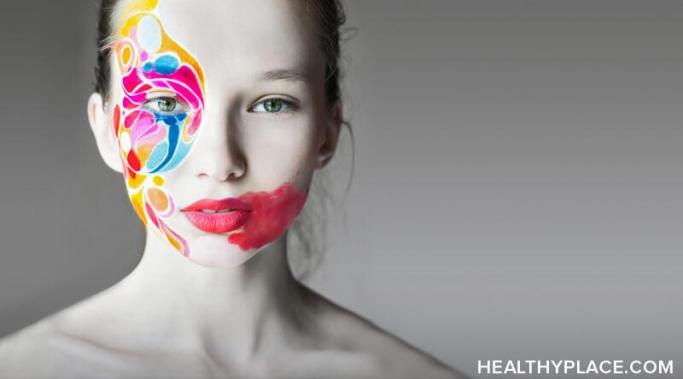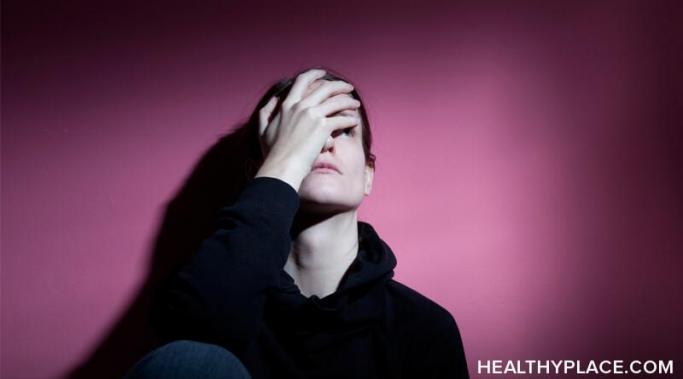I have an extreme case of schizoaffective anxiety, and I’m preparing for major surgery. I’m getting knee replacements in both knees--one at a time. This anxiety spike about surgery is multi-faceted.
Living with Schizophrenia
I want to make it clear that my identity is not just related to my schizophrenia. For nearly seven years, during my thirties, I lived almost schizophrenia and anxiety symptom-free. It was before I developed an anxiety disorder, and shortly after the period where I became treatment compliant and took my medication every day. I look back at that time as remarkable.
Schizophrenia and routines are good partners. As someone with schizophrenia and generalized anxiety disorder (GAD), my mind can often feel chaotic. I might simultaneously experience olfactory hallucinations (smells), paranoia, and cycling thoughts about worst-case scenarios or other symptoms. These symptoms leave little space in my brain for health and wellbeing. That is why when I am at home, I follow a routine to add order and a sense of safety. Routines can give us a feeling that we have something we can count on when we have schizophrenia. They can also offer structure that can help with feeling out of control.
I formerly used earplugs to drown out the noise and chatter in restaurants and some other public places, but now I’ve switched to noise-canceling headphones to deal with the anxiety those noises cause. Let me tell you about them and about why I need noise-canceling headphones for anxiety in the first place.
Schizophrenia and addiction seem intertwined for me. I don't know if I am more prone to addiction because of my mental illnesses, but it seems like it. For years I smoked cigarettes, and I believe they were masking my more problematic symptoms and emotions or that smoking was a coping mechanism for the symptoms, which were increasing the older I got. I didn't have my first episode of psychosis until my late twenties. Still, before that, I dealt with anxiety, often staying up late into the night, going over every detail of every conversation I had earlier in the day -- constantly worrying that I said or did the wrong thing.
For me, psychosis involves auditory hallucinations (hearing voices and sounds) and is the most dangerous part of my illness. The last time I went to the emergency room for symptoms of psychosis, the doctor asked me if I heard voices, and when I answered that I was, he asked an important question, "Do you do what the voices tell you to do?" And unfortunately, my answer was yes. If you can't immediately see the danger in this scenario, try to think of it this way, imagine taking orders from something that is not real. It's alarming. Schizophrenia, voices, combined with suicidal ideation, is even more alarming.
Yesterday, I noticed an eyelash on my finger. I asked my husband Tom if wishing on eyelashes amounted to magical thinking, even though I already knew it did. I just wiped the eyelash away instead of wishing on it. I am trying to stop most forms of magical thinking.
While doing a few mental health presentations recently, I was surprised that not everyone knew that hallucinations could originate from any of the five senses (taste, touch, sight, sound, smell). There are many different types of hallucinations. I have experienced hallucinations from every one of my senses except maybe taste (gustatory). My most common hallucinations are olfactory (smell). I frequently smell chemicals or something burning when there is no source for either one of those things.
Schizophrenia and generalized anxiety disorder (GAD) are complicated illnesses for which quick fixes do not work. It often seems like popular media outlets cover and sell ideas that dealing with anxiety is just a matter of learning a few mindfulness exercises or wrapping yourself up in a weighted blanket. I see less in the media addressing the symptoms of schizophrenia. Still, I know from experience that people can think that just telling someone with delusions or hallucinations that they aren't real will somehow make the belief disappear (it doesn't).
Today I'd like to share the challenges I face balancing weight loss and avoiding becoming "hangry" (hungry plus angry) with schizoaffective disorder.









